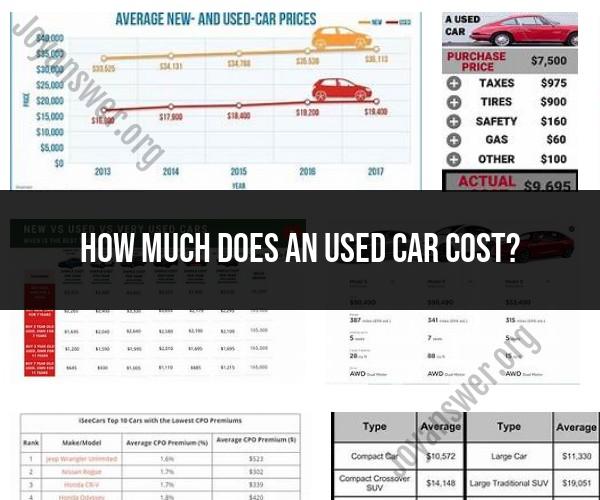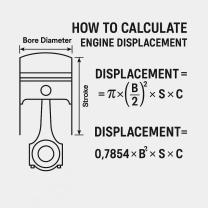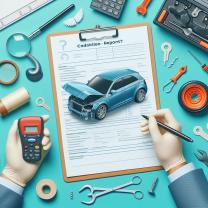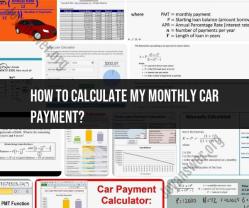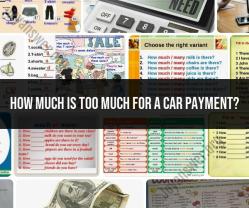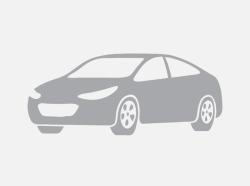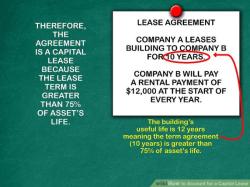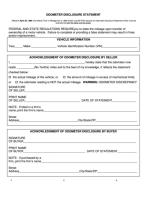How much does an used car cost?
The cost of a used car can vary widely depending on numerous factors. It's essential to consider these factors when estimating the cost of a used car:
Vehicle Make and Model: The make and model of the car significantly influence its price. Luxury brands and popular models often come with higher price tags than less-known or less-sought-after vehicles.
Age of the Car: The age of the used car is a crucial factor. Generally, older cars are less expensive than newer ones, although there are exceptions, particularly for vintage or classic cars.
Mileage: The mileage on the car's odometer is a critical indicator of wear and tear. Lower mileage often translates to a higher price, as it suggests the car has been driven less and may have more life left in it.
Condition: The overall condition of the car, both inside and out, is essential. Cars in excellent condition tend to cost more than those with visible wear and tear or mechanical issues.
Service History: A well-documented service history that shows regular maintenance and repairs can increase the value of a used car. It provides confidence to buyers that the vehicle has been well cared for.
Market Demand: Local and regional market conditions can influence used car prices. In areas with high demand for specific makes or models, prices may be higher. Conversely, in areas with less demand, prices may be lower.
Geographic Location: Prices can vary from one region to another due to factors like climate, driving conditions, and local preferences. For example, cars in regions with harsh winters may command higher prices if they are rust-free.
Vehicle History Report: Obtaining a vehicle history report (e.g., Carfax or AutoCheck) can provide information about accidents, title issues, and ownership history. A clean report typically increases a car's value.
Features and Options: Additional features and options, such as leather seats, a sunroof, advanced infotainment systems, or safety features, can impact a car's price.
Ownership Costs: Consider ongoing ownership costs, including insurance, taxes, fuel efficiency, and maintenance expenses. Some cars may have lower upfront costs but higher ongoing expenses.
Negotiation Skills: Your ability to negotiate the price with the seller or dealership can also impact the final cost of the used car. Being well-prepared and willing to negotiate can help you secure a better deal.
Timing: The time of year can affect prices. For example, prices may be lower at the end of a model year when dealerships want to make room for newer models.
Private Seller vs. Dealership: Cars sold by private sellers may be less expensive than those sold by dealerships. However, buying from a dealership may offer more assurances and potentially come with warranties.
It's important to research and compare prices for specific used cars in your area and consider the factors mentioned above. Additionally, it's a good idea to have a trusted mechanic inspect the car before making a purchase to identify any hidden issues.
Ultimately, the cost of a used car can vary significantly from one vehicle to another, even within the same make and model, so careful research and due diligence are essential to make an informed decision.
1. Used Car Costs: Factors That Influence the Price Tag
The price of a used car is influenced by a number of factors, including:
- Age and mileage: Older cars with higher mileage are typically less expensive than newer cars with lower mileage.
- Make and model: Some makes and models hold their value better than others. This is due to a number of factors, including reputation, reliability, and demand.
- Condition: The overall condition of a car has a significant impact on its value. Cars that are in good condition with regular maintenance records typically sell for more than cars that are in poor condition or have a history of problems.
- Location: The location of a car can also affect its price. Cars that are located in areas with a high demand for used cars, such as major metropolitan areas, typically sell for more than cars that are located in areas with a lower demand.
- Time of year: The time of year can also affect used car prices. Cars typically sell for less during the winter months, when demand is lower.
Other factors that can affect the price of a used car include:
- Options: Cars with more options, such as a sunroof, leather seats, or a premium sound system, typically sell for more than cars without these options.
- Color: Some car colors are more popular than others, and popular colors typically sell for more than unpopular colors.
- History: If a car has been in an accident or has been salvaged, its value will be lower.
- Demand: The overall demand for used cars can also affect prices. If demand is high, prices will tend to be higher.
2. Budgeting for a Used Car: How Much to Expect in Terms of Costs
When budgeting for a used car, it is important to consider the following costs:
- Purchase price: The purchase price of the car is the largest cost associated with buying a used car.
- Taxes and fees: When you buy a used car, you will need to pay taxes and fees, such as registration and title fees.
- Insurance: You will need to purchase insurance for your used car. The cost of insurance will vary depending on a number of factors, including your age, driving record, and the type of car you buy.
- Gas and maintenance: You will need to budget for gas and maintenance costs. The cost of gas will vary depending on the fuel efficiency of your car and the price of gas in your area. The cost of maintenance will vary depending on the type of car you buy and how often you drive it.
3. Finding the Right Deal: Tips for Determining the Price of a Used Car
Here are some tips for determining the price of a used car:
- Do your research: Before you start shopping, research different makes and models to learn about their reliability and resale value. You can use online tools such as Kelley Blue Book and Edmunds to get an estimated value for the car you are interested in.
- Get a pre-purchase inspection: Before you buy a used car, have it inspected by a qualified mechanic. This will help you identify any potential problems with the car and give you an idea of how much it will cost to fix them.
- Negotiate: Don't be afraid to negotiate on the price of a used car. Most sellers are willing to negotiate, especially if you are willing to pay cash.
By following these tips, you can increase your chances of getting a good deal on a used car.
Here are some additional tips for finding the right deal on a used car:
- Shop around: Get quotes from multiple dealerships before you make a decision.
- Be patient: Don't be afraid to walk away from a deal if you're not happy with it. There are plenty of other used cars out there.
- Consider buying a private party: Private party sellers often sell their cars for less than dealerships. However, it's important to be more careful when buying a car from a private party, as you may not have the same protections as you would when buying from a dealership.
Buying a used car can be a great way to save money on transportation. However, it's important to do your research and shop around to get the best deal.
